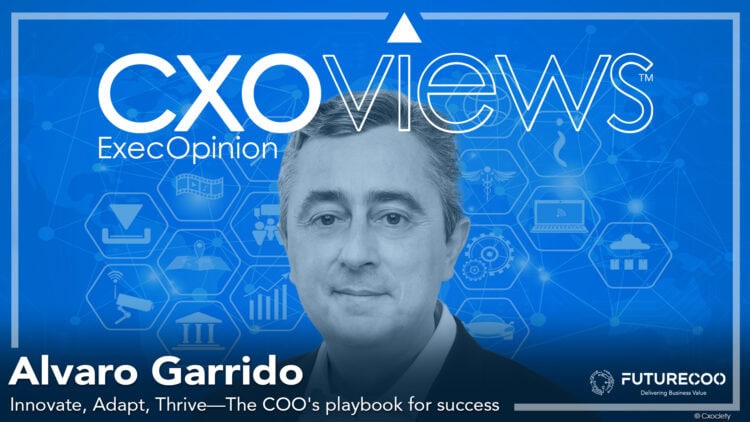There is never a dull moment in Asia’s rapidly evolving and expanding banking sector. Key trends reshaping the industry include the rise of hyper-personalisation through data analytics, the adoption of open banking initiatives, and an increasing focus on sustainability and ethical governance.
These trends present challenges and opportunities, compelling banks to rethink their operational strategies. The imperative to strengthen governance and risk management frameworks is underscored by regulatory pressures around climate change, anti-money laundering (AML), and conduct risks, especially in major financial hubs like Hong Kong and Singapore.
In this dynamic environment, COOs must enhance operational resilience and foster innovation to maintain competitive advantage. Integrating AI into banking operations is no longer optional; it is essential for driving efficiency and improving customer engagement.
However, with AI's promise comes the responsibility of ethical governance, particularly in mitigating risks associated with biases and societal impacts.
As banks embrace emerging technologies like generative AI and distributed ledger technology (DLT), a proactive approach to governance will be crucial. The ability to build agile, customer-centric organisations that can adapt quickly to shifting market demands will set leading banks apart. This article will explore the key imperatives for COOs in Asian banks as they navigate this multifaceted landscape, ensuring they are well-equipped to sustain growth and build trust in an increasingly complex operational environment.
Strengthening governance and risk management frameworks
Governance and risk management remain foundational for COOs in Asian banks. Regulatory expectations are intensifying around climate risk, anti-money laundering (AML), and conduct risk management, particularly in financial hubs like Hong Kong and Singapore.

According to Alvaro Garrido, Standard Chartered's COO for Technology & Operations and CIO for Information Security & Data, "the rapid adoption of AI also raises some challenges," including increased fraud risks and societal impacts, which require banks to embed robust risk controls and ethical governance frameworks.
Banks must implement data-driven risk controls and transparent governance structures to meet these mandates. Garrido highlights Standard Chartered's approach to financial crime detection, where AI and machine learning models are integrated into name and transaction screening processes.
"This enhances regulatory compliance and reduces the number of manual interventions needed compared to conventional technologies. This speed of execution also contributes to faster transaction processing." Alvaro Garrido
The Asia-Pacific Banking & Payments Trends 2025 report echoes this, noting that AI-driven hyper-personalisation and open banking initiatives demand sophisticated data management and analytics capabilities to manage risks effectively.
Building technology resilience and operational continuity
Technology resilience is a critical focus area for 2025. Banks invest heavily in agile infrastructure, cloud computing, and platform strategies to enable rapid innovation and operational continuity amid rising cyber threats.
Garrido emphasises that "the digital footprints of banks are expanding," which increases inherent cyber risks, especially as services become more digitised and interconnected.
Standard Chartered mitigates these risks through a multi-layered cybersecurity strategy, including continuous monitoring, collaboration with regulators, and rigorous stress testing. Garrido explains, "We have a 'defence-in-depth' Information & Cybersecurity (ICS) control environment strategy to protect, detect and respond to known and emerging ICS threats," supported by external reviews such as Hong Kong Monetary Authority's intelligence-led cyberattack simulations.
This aligns with the broader regional trend highlighted in the Capco report, which stresses that banks must balance innovation with robust cyber defences and regulatory compliance to maintain trust.
Leveraging AI and data analytics for competitive advantage
AI is no longer optional but an operational imperative for banks. Garrido describes Standard Chartered's deployment of generative AI (GenAI) tools, such as SC GPT, which nearly 80,000 employees use globally to enhance operational efficiency and client engagement.
"Effective and responsible adoption of AI is an operational imperative for all banks," he comments. "With a distinct and increasingly differentiated strategy, we are confident in the potential of GenAI to help us win in so many areas across Cross-border and Affluent banking by driving new efficiencies and transforming service delivery."
Beyond customer service, AI is transforming risk monitoring, financial crime detection, and regulatory reporting. Garrido notes the Bank's investment in workforce upskilling through an AI Learning Hub, enabling employees to build AI literacy and apply these tools responsibly.
This approach supports a culture of innovation balanced with ethical governance, as Standard Chartered's Responsible AI framework aligns with leading regulatory standards from MAS and HKMA.
There are expectations of widespread GenAI deployment across banking functions in 2025, emphasising maintaining human oversight and strong AI governance.
Navigating emerging tech with responsible governance
Emerging technologies such as generative AI, distributed ledger technology (DLT), and tokenisation present opportunities and challenges. Garrido highlights the Bank's innovation unit, SC Ventures, which is developing compliant, bank-grade platforms for digital assets, including custody services and tokenised bonds.
"This proves our commitment to build infrastructure that will enable institutional adoption of digital assets," he explains.
However, responsible governance is crucial. Garrido stresses the importance of mitigating biases in GenAI and ensuring fairness and respect in AI use. "We have developed robust guidelines to support colleagues in ensuring the appropriate use of AI prompts," he says.
This cautious yet proactive stance reflects the broader regulatory environment in Asia, where sandbox initiatives and evolving guidelines support innovation while safeguarding against operational and reputational risks.
Building agile, customer-centric organisations
The rapid technological transformation demands new talent strategies. Garrido emphasises balancing technical and human skills to sustain growth and innovation.
Standard Chartered invests heavily in upskilling and reskilling through online platforms and Future Skills Academies focused on data analytics, digital, and cybersecurity. "Over 71,000 colleagues actively used the platform in 2024," he notes, highlighting the scale of the Bank's commitment.
"We have an internal AI-powered Talent Marketplace, used by over 43,000 colleagues in 2024, which enables people to sign up for projects to access diverse career opportunities," declares the executive.
"We are also exploring employment and mobility models and agile team constructs. These allow the Bank to deploy skills quickly to drive business outcomes while empowering colleagues to choose which flexible working mode matches their career aspirations and personal circumstances." Alvaro Garrido
Conclusion
For COOs of Asian banks in 2025, the imperatives are clear: strengthen governance and risk frameworks to meet evolving regulatory demands; build resilient, agile technology infrastructures; leverage AI and data analytics to enhance operational efficiency and compliance; govern emerging technologies responsibly; and cultivate a skilled, diverse workforce prepared for continuous transformation.
Garrido's insights from Standard Chartered exemplify how leading banks navigate this multifaceted landscape. His emphasis on holistically integrating people, process, and technology agendas, combined with proactive regulatory engagement and innovation, provides a roadmap for COOs striving to sustain growth and trust in a rapidly evolving banking environment.



